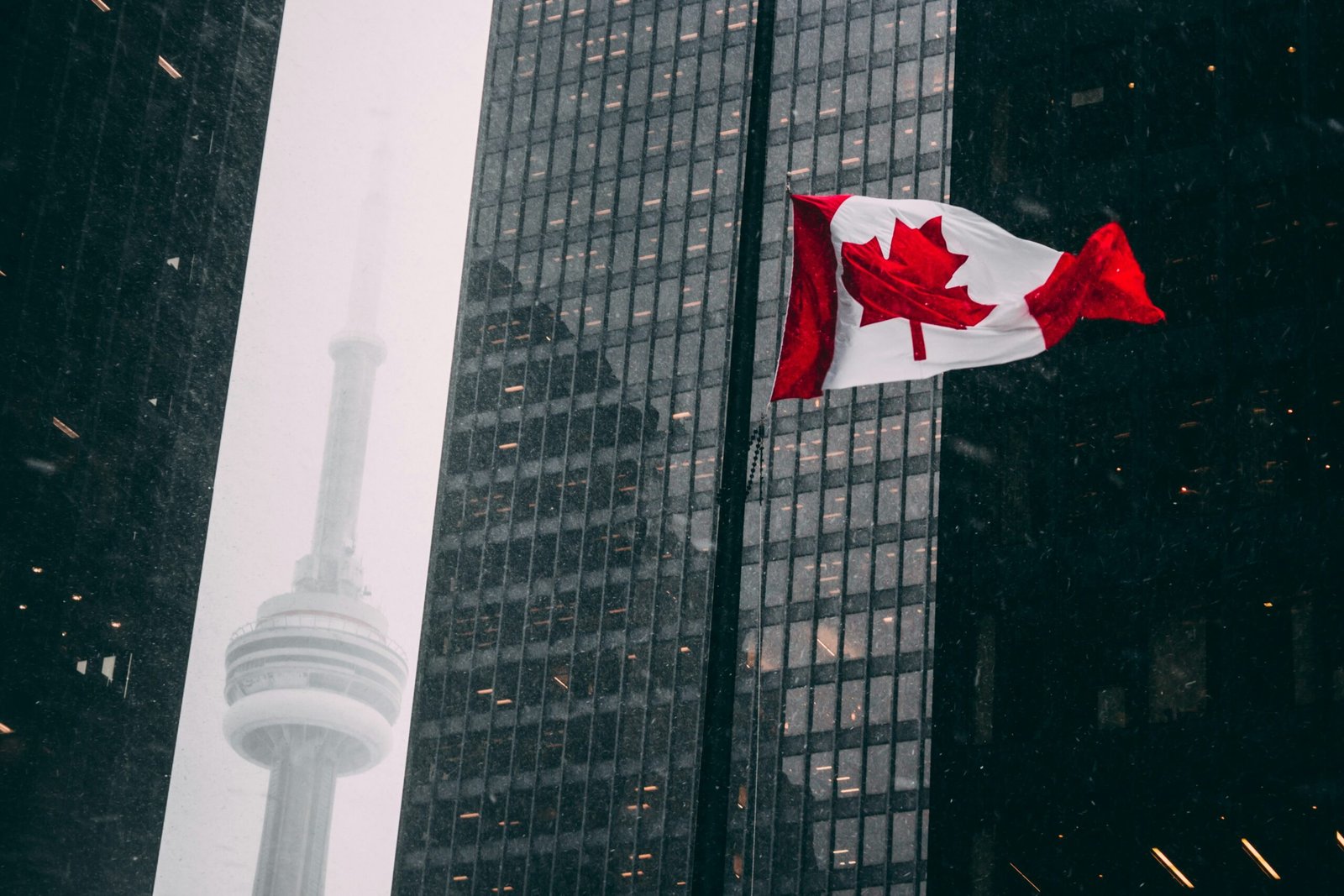Politics
Trump’s Victory: What It Means for Big Tech
Donald Trump’s victory in the 2024 U.S. presidential election has significant implications for the tech industry, particularly in terms of regulation and the relationship between Big Tech and the government. This could signal potential shifts for major technology companies as his administration re-enters the White House. Known for his critical stance toward the influence of big tech firms, Trump’s policies may target social media regulation, privacy rights, and cryptocurrency oversight. This article examines what these changes could mean for tech giants, as well as how industry leaders like Elon Musk may navigate the administration’s policy direction.
Trump’s Stance on Big Tech – A New Wave of Scrutiny?
During his previous tenure, Trump’s administration raised concerns over the growing power of major tech firms, often accusing them of bias and unfair practices. His win could mean increased scrutiny for companies like Meta, Alphabet (Google), and X (formerly Twitter). With a history of advocating for transparency and accountability, Trump may push for regulations requiring tech firms to disclose their algorithms and data practices more openly. This stance may introduce significant challenges, forcing companies to rethink their operational transparency, while also appealing to conservative voices concerned with tech influence over political discourse.
Social Media Regulation – Transparency and Content Moderation
A significant focus for Trump’s new term is likely to be the regulation of social media platforms, especially regarding content moderation practices. During his last administration, Trump criticized platforms like Facebook and Twitter for alleged censorship. Now, the debate around free speech versus misinformation has only intensified, and his administration might seek to implement laws ensuring “viewpoint neutrality.” Trump could push for reforms to Section 230 of the Communications Decency Act, which currently shields platforms from liability for user-generated content. Potential reforms could restrict tech companies’ ability to moderate content without consequence, fundamentally reshaping how platforms handle controversial content.
Privacy Rights – Balancing Data Use and Individual Freedoms
Trump’s election could also impact the ongoing conversation around data privacy, with likely implications for companies reliant on user data collection. His administration may support data privacy reforms, pushing for clearer user consent requirements and limiting companies’ use of personal information. Recent years have seen growing public concern over digital privacy, and Trump’s stance could introduce legislation closer to Europe’s General Data Protection Regulation (GDPR). These changes would mean more robust data security measures, transparency on data collection practices, and possibly heavy penalties for privacy violations.
Cryptocurrency Oversight – Toward Greater Regulation?
The cryptocurrency landscape has rapidly evolved since Trump’s last term, with digital currencies now occupying a more significant role in financial markets. Trump’s views on cryptocurrency have historically been cautious, even skeptical, as he once deemed Bitcoin a “scam.” This administration might seek tighter regulations on digital assets, especially as concerns over fraud and financial stability grow. Regulatory action could include enforcing anti-money laundering (AML) compliance and requiring more transparency from decentralized exchanges. For tech giants invested in blockchain or digital assets, like Meta’s Libra project, this could mean adjusting their strategies to meet compliance standards.

Dynamics with Tech Leaders – Collaboration or Conflict?
The Trump administration’s relationship with tech industry figures could be crucial in shaping regulatory approaches. Elon Musk, for instance, has had a complex, often vocal stance on political matters, supporting free speech but also advocating for limited government interference in tech. Trump’s policies around social media and free speech could resonate with Musk, yet there could be friction on regulatory grounds, especially if federal guidelines challenge the open nature of X (formerly Twitter). The administration’s stance toward leaders like Musk and Zuckerberg may range from collaborative to confrontational, depending on how they align with Trump’s regulatory goals.
Conclusion
Trump’s victory could bring a renewed focus on tech regulation, affecting social media, privacy rights, and cryptocurrency oversight. With increasing bipartisan scrutiny on Big Tech, Trump’s administration is expected to drive policies that push tech companies toward greater accountability, transparency, and user protection. How tech leaders respond will shape the future of these industries in a potentially more regulated landscape, where balancing innovation with oversight becomes essential.
Bolanle Media is excited to announce our partnership with The Newbie Film Academy to offer comprehensive courses designed specifically for aspiring screenwriters. Whether you’re just starting out or looking to enhance your skills, our resources will provide you with the tools and knowledge needed to succeed in the competitive world of screenwriting. Join us today to unlock your creative potential and take your first steps toward crafting compelling stories that resonate with audiences. Let’s turn your ideas into impactful scripts together!
News
Protests Erupt During Ventura County Immigration Raid

Federal agents conducting an immigration enforcement operation at Glass House Farms, a major cannabis cultivation site near Camarillo, Ventura County, were met by a large crowd of protesters on Thursday. The raid, which involved officers from Immigration and Customs Enforcement (ICE), U.S. Border Patrol, and reportedly the National Guard, quickly escalated into a chaotic confrontation that drew national attention.

Details of the Operation
- Targeted Facility:
The operation focused on Glass House Farms, billed as the world’s largest cannabis growing operation, employing hundreds of workers. Federal agents served warrants on allegations of hiring and harboring undocumented workers. - Scale of the Raid:
The enforcement action unfolded along Laguna Road, with aerial footage showing dozens of agents forming a line across the street and blocking access to the facility. Military-style vehicles and a helicopter were also seen at the scene.
Clashes With Protesters
- Protest Erupts:
As news of the raid spread, hundreds of demonstrators—many with family members working at the farm—gathered outside the facility. Protesters faced off with heavily armed agents, some of whom wore helmets and gas masks.
- Use of Force:
Tensions escalated when agents deployed tear gas, smoke canisters, and less-than-lethal rounds to disperse the crowd. Protesters reportedly threw rocks and other objects in response. Several people were seen being detained, and at least one person was taken away on a stretcher. - Medical Response:
The Ventura County Fire Department confirmed that paramedics transported four people to the hospital and treated several others at the scene for injuries related to the use of tear gas and crowd-control munitions.

Community Impact and Reactions
- Worker Detentions:
Dozens of farmworkers were reportedly apprehended and loaded onto buses. Some witnesses described seeing workers and even U.S. citizens detained by federal agents. - Personal Stories:
Family members anxiously searched for loved ones, with some reporting they had lost contact with relatives working in the fields during the raid. One protester described being hit with a paintball and tear-gassed while trying to speak out. - Political and Community Response:
Local officials and immigrant rights groups condemned the raid, highlighting the fear and disruption caused within the agricultural community. California Assemblymember Jacqui Irwin called the militarized operation “heartbreaking,” emphasizing the essential role of farmworkers in the state’s economy.
Broader Context
- Policy Shifts:
The raid is part of a broader increase in federal immigration enforcement actions across Southern California, targeting farms, car washes, and other workplaces. The Trump administration has sent mixed signals on the issue, with recent reversals on enforcement priorities and ongoing debate over the future of undocumented farmworkers. - Ongoing Investigation:
The FBI is investigating reports that a protester fired a handgun at agents during the confrontation. No injuries from gunfire were reported, but authorities are offering a reward for information leading to a conviction.

Key Facts Table
| Event Detail | Description |
|---|---|
| Date of Raid | July 10, 2025 |
| Location | Glass House Farms, Camarillo, Ventura County |
| Agencies Involved | ICE, Border Patrol, National Guard |
| Protester Response | Tear gas, smoke canisters, less-lethal rounds used |
| Detentions | Dozens of workers detained, unclear total number |
| Injuries | At least 4 hospitalized, several treated on scene |
| Community Impact | Fear, disruption, family separation |
| Ongoing Investigation | FBI probing alleged gunfire at agents |
Conclusion
The immigration raid at Glass House Farms in Ventura County has become a flashpoint in the national debate over immigration enforcement and farm labor. The confrontation between federal agents and protesters underscores the deep divisions and anxieties within communities that rely on undocumented workers, as well as the challenges facing both law enforcement and advocates in a rapidly shifting policy landscape.
Business
How Trump’s Tariffs Could Hit American Wallets

As the debate over tariffs heats up ahead of the 2024 election, new analysis reveals that American consumers could face significant financial consequences if former President Donald Trump’s proposed tariffs are enacted and maintained. According to a recent report highlighted by Forbes, the impact could be felt across households, businesses, and the broader U.S. economy.

The Household Cost: Up to $2,400 More Per Year
Research from Yale University’s Budget Lab, cited by Forbes, estimates that the average U.S. household could pay an additional $2,400 in 2025 if the new tariffs take effect and persist. This projection reflects the cumulative impact of all tariffs announced in Trump’s plan.
Price Hikes Across Everyday Goods
The tariffs are expected to drive up consumer prices by 1.8% in the near term. Some of the hardest-hit categories include:
- Apparel: Prices could jump 37% in the short term (and 18% long-term).
- Footwear: Up 39% short-term (18% long-term).
- Metals: Up 43%.
- Leather products: Up 39%.
- Electrical equipment: Up 26%.
- Motor vehicles, electronics, rubber, and plastic products: Up 11–18%.
- Groceries: Items like vegetables, fruits, and nuts could rise up to 6%, with additional increases for coffee and orange juice due to specific tariffs on Brazilian imports.

A Historic Tariff Rate and Economic Impact
If fully implemented, the effective tariff rate on U.S. consumers could reach 18%, the highest level since 1934. The broader economic consequences are also notable:
- GDP Reduction: The tariffs could reduce U.S. GDP by 0.4% annually, equating to about $110 billion per year.
- Revenue vs. Losses: While tariffs are projected to generate $2.2 trillion in revenue over the next decade, this would be offset by $418 billion in negative economic impacts.
How Businesses Are Responding
A KPMG survey cited in the report found that 83% of business leaders expect to raise prices within six months of tariff implementation. More than half say their profit margins are already under pressure, suggesting that consumers will likely bear the brunt of these increased costs.

What This Means for Americans
The findings underscore the potential for substantial financial strain on American families and businesses if Trump’s proposed tariffs are enacted. With consumer prices set to rise and economic growth projected to slow, the debate over tariffs is likely to remain front and center in the months ahead.
For more in-depth economic analysis and updates, stay tuned to Bolanlemedia.com.
Business & Money
Trump Announces 35% Tariff on Canadian Imports Starting August 1, 2025

U.S. President Donald Trump has announced a sweeping 35% tariff on all Canadian imports, effective August 1, 2025. This move marks a significant escalation in trade tensions between the United States and Canada, two of the world’s closest economic partners. The measure is part of Trump’s broader strategy to address what he calls “unsustainable Trade Deficits” and protect American industries.

Details of the Tariff
- Scope: The 35% tariff applies to virtually all Canadian exports to the United States, with no exemptions for goods that comply with the USMCA (United States-Mexico-Canada Agreement), which had previously provided certain protections.
- Enforcement: Goods transshipped through third countries to avoid the tariff will still be subject to the 35% rate.
- Timeline: The tariff takes effect on August 1, 2025.
- Potential Adjustments: Trump has indicated that the rate could be increased if Canada retaliates with its own tariffs, or lowered if Canada addresses U.S. concerns, such as stopping fentanyl trafficking.
Justifications Cited by the Trump Administration
President Trump’s announcement cited several reasons for the new tariff:
- Retaliatory Measures: Canada’s previous retaliatory tariffs against U.S. goods.
- Trade Deficits: Concerns over the U.S. trade deficit with Canada, which Trump claims threatens national security.
- Dairy Industry: Complaints about Canada’s high tariffs on U.S. dairy products, reportedly up to 400%.
- Fentanyl Trafficking: Allegations that Canada has not done enough to prevent the flow of fentanyl into the U.S..

Economic and Political Impact
Economic Concerns
- Business Reaction: A recent poll found that 84% of American business leaders are worried about the negative impact of tariffs on the U.S. economy’s global standing.
- Supply Chains: The integrated North American supply chain, especially in the automotive sector, is expected to be severely affected. Major automakers have warned of significant disruptions and cost increases.
- Tariff Trends: U.S. applied tariff rates have surged under Trump’s administration, reaching historic highs in early 2025. The new Canadian tariff could push average rates even higher after a brief reduction earlier in the year.
Diplomatic Repercussions
- Canadian Response: Prime Minister Mark Carney, recently elected on an anti-Trump platform, is preparing retaliatory tariffs on U.S. goods. Canada has previously imposed tariffs on $20 billion (CA$30 billion) worth of American products, with plans to expand further.
- Breakdown in Negotiations: Diplomatic relations have deteriorated, especially after the U.S. ended trade talks following Canada’s implementation of a digital services tax in June 2025. Despite previous commitments at the G7 summit to seek compromise, the relationship remains tense.

Conclusion
The imposition of a 35% tariff on Canadian imports by the United States represents a major shift in North American trade relations. The move is expected to have wide-ranging economic and diplomatic consequences, with both countries bracing for further escalation and uncertainty in cross-border commerce.

 Business1 week ago
Business1 week agoPros and Cons of the Big Beautiful Bill

 Advice2 weeks ago
Advice2 weeks agoWhat SXSW 2025 Filmmakers Want Every New Director to Know

 Film Industry3 weeks ago
Film Industry3 weeks agoFilming Yourself and Look Cinematic

 News2 weeks ago
News2 weeks agoFather Leaps Overboard to Save Daughter on Disney Dream Cruise

 Politics4 weeks ago
Politics4 weeks agoBolanle Newsroom Brief: Israel Strikes Iran’s Nuclear Sites — What It Means for the World

 Health2 weeks ago
Health2 weeks agoMcCullough Alleges Government Hid COVID Vaccine Side Effects

 Advice2 weeks ago
Advice2 weeks agoWhy 20% of Us Are Always Late

 Advice2 weeks ago
Advice2 weeks agoHow to Find Your Voice as a Filmmaker







































